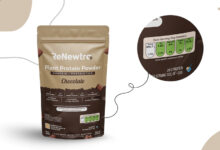Cold chain management for Covid-19 vaccination
New Delhi (India Science Wire): COVID-19 vaccination can be considered as a unique landmark in the history of vaccination campaigns in public health in terms of the scale of operations involved. It requires highly focused planning and implementation of various activities. There is particularly a need to ensure proper management of the cold chain and other logistics critical for the reach and quality of the campaign.
Accordingly, the national operational guidelines prepared by the Government of India for the immunisation programme has drawn out a detailed plan of action to take care of this aspect. There are standard operating procedures for the storage, movement and usage of the vaccine vials and other material at different levels.
At the immunisation centres, where there is a higher risk for the vaccines to get warmed up beyond the required temperature range, special efforts are required to be taken to avoid exposing the vaccine carrier, vaccine vials or icepacks to direct sunlight. The vaccines and the diluents are also kept inside the vaccine carrier with the lid closed tightly until a beneficiary comes to the centre for vaccination and at the end of every session, vaccine carriers with icepacks and unopened vaccine vials are sent back to the distributing cold chain point for safekeeping. Intact sealed vials that are returned are clearly marked and kept separately in the ice lined refrigerator on the top layer so that these will be the first to be used on the following session day.
Besides, before vaccines are brought to the immunisation centres, at the last cold chain points, it is ensured that the vaccine carriers are clean and dry before being packed with ice packs and vaccine vials inside a zipper pouch to avoid any possibility of contamination. Whenever vaccines have to be moved in bulk, it is ensured that they are transported in a properly insulated manner.
Arrangements are also made to ensure that technicians tasked to maintain the cold chain follow a proper preventive maintenance plan to cover all cold chain points regularly. The cold chain technician should follow the recommended norms for response time (less than two days from intimation) and downtime of equipment (maximum of seven days in normal areas and 21 days in hilly areas).
Since the safety and security of each dose of the COVID-19 vaccine is of paramount importance, State Governments undertake adequate safety and security measures at location of vaccine storage, during transport and at immunisation sites. Stringent vigilance mechanisms are in place to protect against pilferage and theft. Further, at immunisation sites, all vaccination teams should have an extra vaccine carrier with ice packs to provide for any contingency.
Likewise, at cold chain points, any temperature excursion beyond 30 minutes is required to be responded to with alternate storage of vaccines in the short term and repair of the affected cold chain equipment as soon as possible on an emergency basis. At district vaccine stores, vaccine distributions are planned with small quantities to avoid any risk of temperature excursions that could arise if vaccines were to be transported in large quantities.
At State/ regional vaccine stores, vaccine distribution plans ensure minimum time for vaccine delivery to district stores and vaccine vials, with earlier manufacturing dates prioritized for issue first. Alternate vaccine storage sites (including the private sector and non-health public sector) are also identified in advance of vaccine arrival including all contractual arrangements and site inspections. State level monitors should supervise every vaccine arrival and distribution event to ensure the quality process in vaccine receipt and distribution. (India Science Wire)










